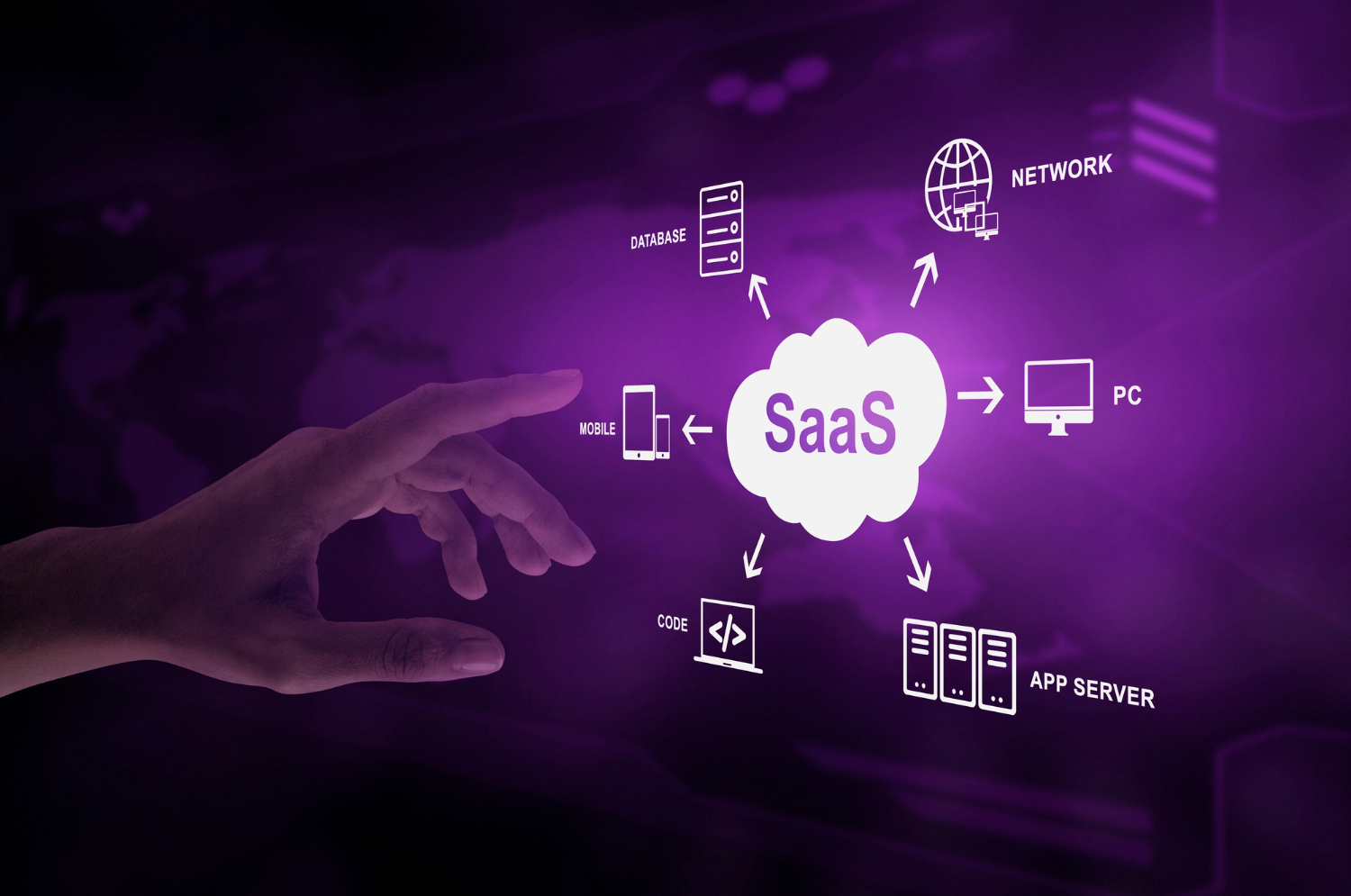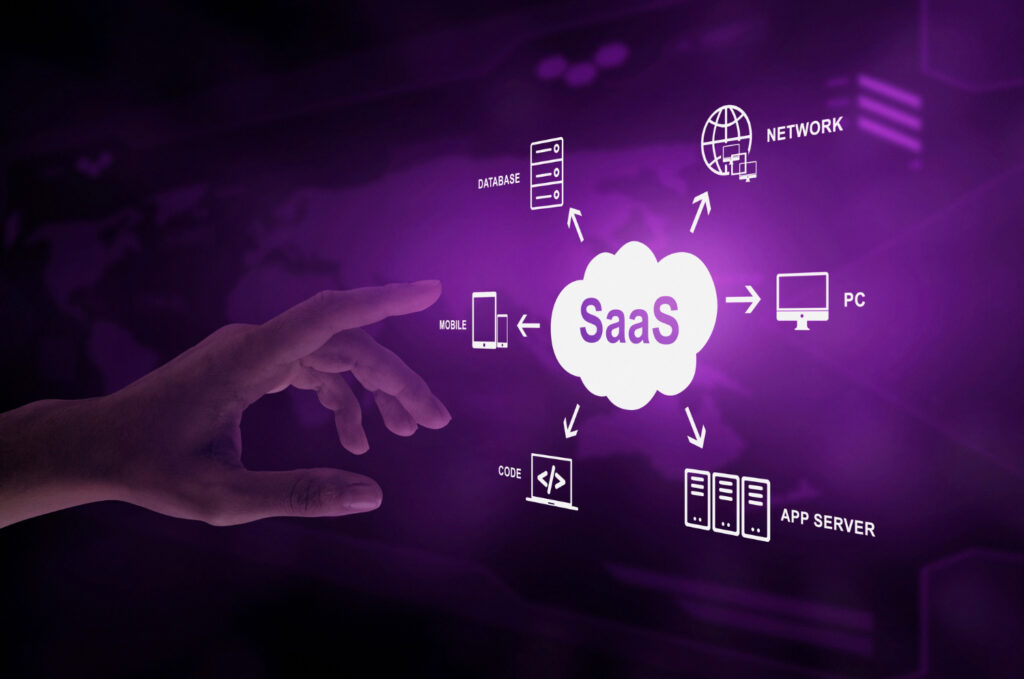The Software-as-a-Service (SaaS) industry has seen immense growth over the past few years, and much of this can be attributed to the integration of artificial intelligence (AI). No longer a futuristic concept, AI is actively reshaping how SaaS products are developed, delivered, and used.
For SaaS leaders, understanding the uses of artificial intelligence to drive value for both providers and users is no longer optional; it’s essential for staying competitive. Consider these compelling statistics:
- A significant portion of SaaS companies are already experiencing positive results from AI integration, utilizing machine learning algorithms and other AI techniques to personalize experiences and optimize operations.
- Customers are willing to pay a premium for AI-powered features that personalize user experiences and anticipate their needs.
AI is not just a shiny new tool; it’s a key driver of differentiation and growth in the competitive SaaS landscape. In this blog, we’ll delve into the customer-centric revolution fueled by AI, exploring how it personalizes experiences, provides proactive support, and empowers SaaS companies to deliver unparalleled value.
The Customer-Centric Revolution
Gone are the days when SaaS platforms could offer a one-size-fits-all solution. Today, customers expect more personalized, user-specific experiences, and this is where AI-powered tools come in. Here’s how:
- Hyper-Personalization: AI can analyze vast amounts of user data, including behavior patterns and preferences. This allows for targeted recommendations, content creation, and in-app guidance, leading to a more relevant and engaging user experience. A report by McKinsey & Company found that personalization can increase customer satisfaction by up to 75% and boost sales by up to 10%.
- Intelligent Support (Chatbots): AI-powered chatbots are transforming customer support. These virtual assistants can answer frequently asked questions, troubleshoot basic issues, and even schedule demos, freeing up human support teams for more complex interactions. An Oracle study revealed that 80% of businesses believe chatbots will play a significant role in customer service.
- Predictive Analytics for Improved User Experience: AI can analyze user data through techniques like regression analysis to predict potential roadblocks and areas for improvement. This allows SaaS companies to proactively address user needs before they become issues, leading to a more seamless and enjoyable user experience.
AI’s Impact on SaaS Operations
The benefits of AI extend far beyond the customer experience. SaaS providers can leverage AI to streamline internal operations and gain a significant competitive edge:
- Streamlined Back-End Operations: AI can automate repetitive tasks such as data entry, contract generation, and customer onboarding. This frees up valuable time and resources for human teams to focus on strategic initiatives and high-value customer interactions.
- Demand Forecasting: Using historical data, AI-powered tools can predict future demand for SaaS products, allowing companies to plan their resources effectively and avoid potential bottlenecks.
- Agile, Data-Driven Product Development: AI in SaaS helps companies develop better products by analyzing user data and identifying areas for improvement. This enables a more agile approach to product development that is aligned with user needs.
Emerging Trends in SaaS, Powered by AI
The transformative power of AI in SaaS is constantly evolving. Here are some exciting trends shaping the future of the industry:
- AI-powered Pricing Optimization: AI can analyze customer data and usage patterns to determine optimal pricing strategies. This allows SaaS companies to personalize pricing based on customer value using value-based pricing, maximize revenue potential, and improve customer satisfaction.
- Predicting Churn Before It Happens (and stopping it!): AI can predict customer churn risk by analyzing user behavior data. This enables SaaS companies to proactively intervene with targeted engagement strategies and personalized support, reducing churn and increasing customer lifetime value.
- Self-Optimizing SaaS Platforms: AI can continuously analyze user data and platform usage to automatically optimize features and functionality. This ensures the platform remains relevant and delivers the most value to users over time.
Related Update: Navigating the SaaScape: Emerging Trends in the Software-as-a-Service Industry
The Future of SaaS is Intelligent
It’s clear that AI and SaaS will continue to be closely linked as both industries grow. By adopting AI, SaaS companies can offer more personalized experiences, optimize operations, and stay competitive. The integration of new AI technology will open doors to further innovation, providing SaaS companies with the tools they need to keep up with customer demands and market trends.
As businesses continue to adopt AI, the SaaS platforms that effectively leverage this technology will see significant benefits in both customer satisfaction and operational efficiency. For companies looking to stay ahead in this rapidly evolving landscape, exploring AI-powered solutions is not just an option—it’s a necessity.






